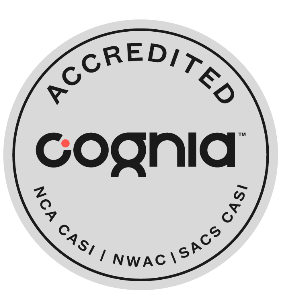The targeted interventions described in the tables below have been selected based on research that suggests the practices used in the intervention program or resource can reduce specific skill deficits in reading or math. Schools select a combination of interventions based on number of students identified and their needs for support, time allocated in the master schedule, the number of educators allocated to implement the intervention, resources available for monitoring the fidelity of the implementation, and program cost.
Elementary schools deliver targeted intervention supports during skill-based instruction within the literacy and math blocks. Secondary schools deliver targeted intervention supports in a reading class or math lab in place of an elective course.
NOTE: Specific interventions used for special education or English Language Development (ELD) services are not listed; however, some students with disabilities or ELD needs may also be participating in intervention groups/classes where the supplemental interventions listed below are being utilized.
- Reading
- 95% Group Basic and Advanced Phonics Lessons (Grades 1-5)
- Closely aligned to CORE phonics survey for phonics and PA lessons. Diagnostic assessment is included. Materials need initial school level set up. Targeted Skill is mastered over 5 days.
- ERI KIT (Kindergarten)
- Fast-paced, 5 lesson sequence spiraled instruction with beginning literacy skills, including phonemic awareness, phonics, writing, dictation.
- Great Leaps (Grades 1-3)
- Materials have four parts: sound awareness (phonological/phonemic awareness), letter recognition and phonics, high frequency sight words and phrases, and stories for oral reading. The stories are included and begin at the pre-primer level with questions to follow-up reading.
- Imagine Learning* (Grades K-5)
- Computer-based language learning program. Required for ELs levels 1-3 and recommended for level 4.
- KPALS (Kindergarten)
- Lexia Core 5* (Grades 1-5)
- Computer-based intervention program for phonemic awareness, phonics, automaticity, and comprehension.
- Membeam (Grades 6-10)
- Membeam is a digital vocabulary intervention that helps students learn the meanings of words through their roots in a game-like format.
- PALS (Grades 2-3)
- Designed for paired practice to develop fluency with text. Applies a strategic approach to reading to ensure text comprehension and enhance vocabulary. (Story Share Routine & paragraph shrinking)—*Program after training is recommended as a practice station
- PALS (Grade 1)
- Peer Assisted Learning Strategies (PALS) is designed to provide systematic and explicit instruction in phonological decoding and comprehension practice. An Instructional alignment is found in the map which identifies lessons appropriate for this group. It may also be used with larger groups for at-risk student populations
- Passport Reading Journeys (Grades 6-10)
A reading intervention program that focuses on engaging and motivating students with age-appropriate instruction and content that includes real-world relevant, captivating Expedition themes and technology components that support and enhance reading comprehension instruction.
- Phonics for Reading (Grades 2-5)
Builds phonemic awareness, decoding, and fluency skills to strengthen reading comprehension. Systematic, explicit instruction builds confidence and motivation. Specifically designed to appeal to older students Phonics for Reading protocol outlines a 45-60 minute session.
- READ 180 (Grades 6-10)
READ 180 is a reading program designed for struggling readers who are reading 2 or more years below grade level. It provides blended learning instruction (i.e., combining digital media with traditional classroom instruction), student assessment. READ 180 is delivered in 45- to 90-minute sessions that include whole-group instruction, three small-group rotations, and whole-class wrap-up. Small-group rotations include individualized instruction using an adaptive computer application, small-group instruction with a teacher, and independent reading.
- Reading Plus* (Grades 3-5)
- Computer-based instruction. Uses a guided window to help train student’s eyes to move smoothly and quickly across the text to increase speed. Comprehension questions follow the selection and vocabulary is built into instruction.
- Really Great Reading Phonics Suite (Grades 2-9)
- Beginning reading foundation skills for students with 2 or more years deficit in phonemic awareness and phonics skills for students needing extensive intervention. Is supported with online components and student workbook. The Suite includes Phonics Blast, Phonics Boost, Phonics Blitz, and HD Word
- Rewards Intermediate Level (Grades 4-5)
- Rapid-paced, explicit, systematic instruction to support students with decoding multisyllabic words and increase fluency. Supports vocabulary with instruction on affixes, base words and roots. Students must be proficient at a 3rd grade level.
- Saxon Phonics (Grades 1-3)
- Comprehensive Phonemic Awareness and Phonics program. Vertically aligned with tight scope and sequence, 5-day skill spiral, scripted. *Recommended for classrooms or schools with large number of students with high Phonemic Awareness and Phonics needs. Can be used with larger groups.
- SBI Manual Rtl Kit (Grades 1-5)
- The Small Group Manual was developed to support the implementation of the Reading Street supplemental intervention program: RtI Kit within Canyons’ literacy block and framework.
- SBI Manual ELL Fluency Lesson Plan ELL Handbook (Grades 1-5)
- Developed to support the Reading Street ELL Handbook effectively in order to provide intensified instruction for students acquiring English as a second language.
- Six-Minute Solution (Grades 6-8)
- Purpose is to build reading fluency. Students do repeated readings, in pairs, of one-minute nonfiction passages with partners. Number of words read correctly are graphed. Students are encouraged to retell for text comprehension.
- Sound Partners (Grades 1-2)
- Sound Partners is a 1-1 tutoring program that uses paraprofessionals as tutors. Focuses on phonics, phonemic awareness, sight words, and oral reading practice using decodable texts. Could be used at home with guardian training. *Program designed for one on one tutoring giving high intensity
- Vocabulary Through Morphemes (Grades 6-10)
- Vocabulary through Morphemes is a word study resource that teaches students the most common prefixes, suffixes, and roots and fosters a deeper understanding of the English language.
- Math
For questions about approved or proposed curriculam please contact the Instructional Supports Department.
801-826-5000
shelly.miller@canyonsdistrict.org
Questions or comments about proposed curricula may also be submitted here.

